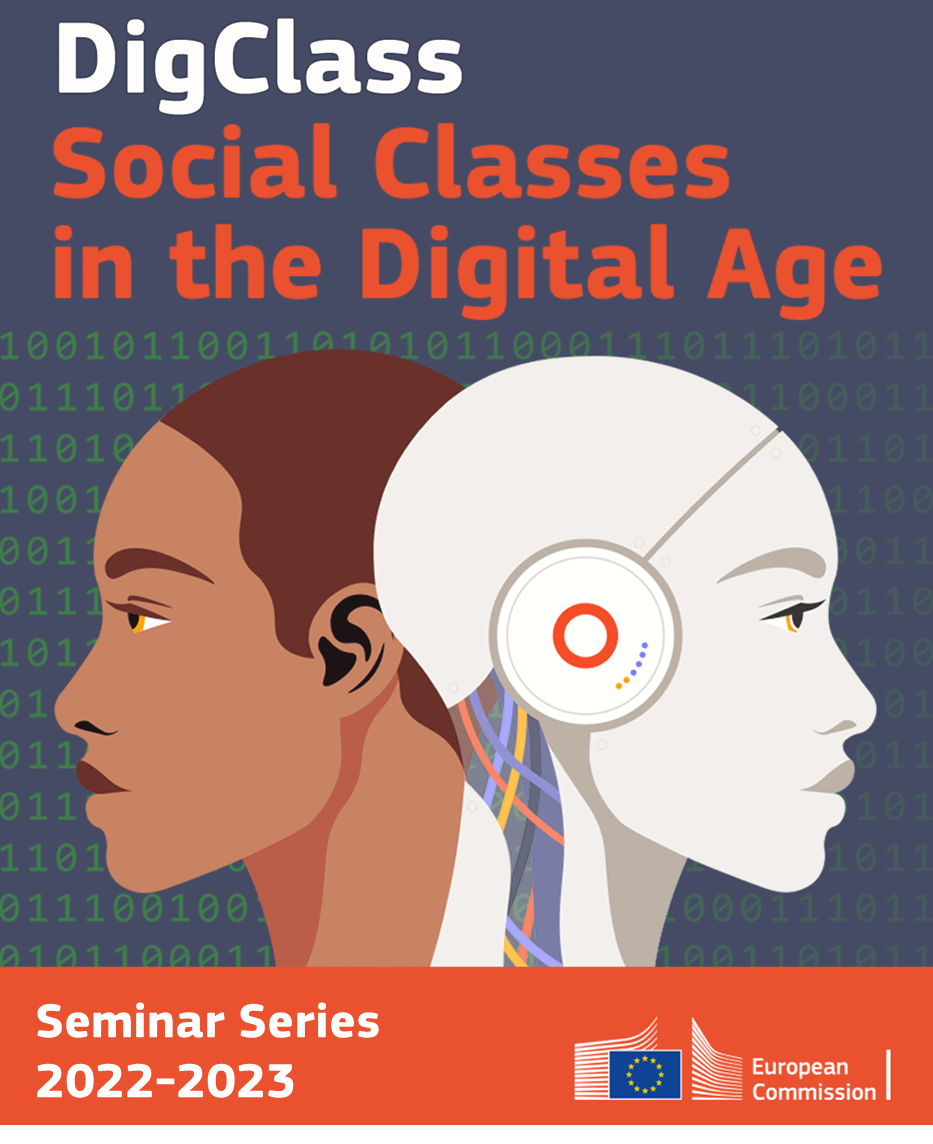- labour market | robotic process automation | innovation | unemployment | new technology
- Tuesday 21 February 2023, 15:00 - 16:00 (CET)
- Online only
- Live streaming available
Practical information
- When
- Tuesday 21 February 2023, 15:00 - 16:00 (CET)
- Where
- Online only
- Languages
- English
- Organisers
- Joint Research Centre
- Part of
- Website
- Link to the session
- Social media links
Description
Title
New Frontiers: The Origins and Content of New Work, 1940–2018
Abstract
We address three core questions about the hypothesized role of newly emerging job categories ('new work') in counterbalancing the erosive effect of task-displacing automation on labor demand: what is the substantive content of new work; where does it come from; and what effect does it have on labor demand? To address these questions, we construct a novel database spanning eight decades of new job titles linked both to US Census microdata and to patent-based measures of occupations’ exposure to labor-augmenting and labor-automating innovations. We find, first, that the majority of current employment is in new job specialties introduced after 1940, but the locus of new work creation has shifted—from middle-paid production and clerical occupations over 1940–1980, to high-paid professional and, secondarily, low-paid services since 1980. Second, new work emerges in response to technological innovations that complement the outputs of occupations and demand shocks that raise occupational demand; conversely, innovations that automate tasks or reduce occupational demand slow new work emergence. Third, although flows of augmentation and automation innovations are positively correlated across occupations, the former boosts occupational labor demand while the latter depresses it. Harnessing shocks to the flow of augmentation and automation innovations spurred by breakthrough innovations two decades earlier, we establish that the effects of augmentation and automation innovations on new work emergence and occupational labor demand are causal. Finally, our results suggest that the demand-eroding effects of automation innovations have intensified in the last four decades while the demand-increasing effects of augmentation innovations have not.
Speaker*
Anna Salomons is an Instituut Gak Endowed Professor at Utrecht University’s School of Economics in the Netherlands, and a Research Fellow at IZA, CEPR, Boston University Technology & Policy Research Initiative, and Carnegie Mellon University Block Center for Technology and Society. Her research studies the labor market impacts of technological change and labor market regulation, focusing on consequences for earnings inequality and employment. Salomons received a Ph.D. in Economics from the University of Leuven in Belgium in 2012 and has held visiting positions at Boston University, Carnegie Mellon, London School of Economics, the Massachusetts Institute of Technology, and the Centre for European Economic Research.
*Joint work with David Autor (Massachusetts Institute of Technology, Department of Economics), Caroline Chin (MIT, Department of Economics), & Bryan Seegmiller (Northwestern University, Kellogg School of Management)
DIGCLASS Seminar Series
The DIGCLASS seminar series is expected to facilitate the exchange of cutting-edge ideas and debates related to social inequality, labour economics and political economy between JRC researchers and beyond by attracting external scholars, policy-makers and a general audience.
Visit the DIGCLASS website to check the full programme!
Drop us a line at JRC-CAS-DIGCLASS@ec.europa.eu if you want to stay tuned with our seminar series and other activities.

